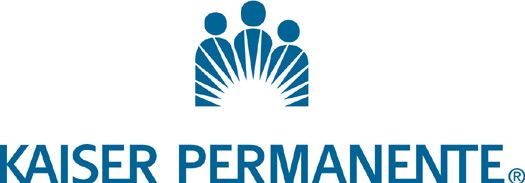Top Class Actions’s website and social media posts use affiliate links. If you make a purchase using such links, we may receive a commission, but it will not result in any additional charges to you. Please review our Affiliate Link Disclosure for more information.

Kaiser’s actions allegedly constituted a violation of the federal Telephone Consumer Protection Act — TCPA — and the company has agreed to pay $5.35 million to settle the robocall class action lawsuit, brought by lead plaintiff Rafael S. in the U.S. District Court for the Southern District of California.
Rafael alleged that Kaiser violated the TCPA by using an automated dialing system, commonly known as a robocall, to call his cellphone in April 2013 soliciting him to reapply for coverage. Rafael’s consent for Kaiser to contact him was revoked when he canceled his health insurance coverage with them three months earlier, according to the TCPA lawsuit.
The TCPA became law in 1991. It carries a $500 fine for each violation. Each cell phone user who proves an intentional violation can sue for $1,500 for each unlawful message.
Provisions of the law prohibit solicitations to residences before 8 a.m. or after 9 p.m. Solicitors are required to provide their name as well as the name of the company they are calling for in addition to a telephone number or address where the company can be contacted. Solicitors must also maintain a company-specific do-not-call list which is to be honored for five years.
The law also strictly prohibits making any calls using an automatic telephone dialing system or an artificial or prerecorded voice to an emergency line such as 911, a hospital emergency number, a physician’s office, a hospital or health care facility, a cell phone, or any service for which the recipient is charged for the call.
Any robocalls that engage two or more lines of a multi-line business are a violation of the TCPA as are unsolicited advertising faxes.
Under the TCPA, using autodialing equipment to send calls to wireless phones without the prior consent of the cellphone user is prohibited. Text messages are considered under the law as the equivalent of telephone calls.
In 2012, according to the Federal Communications Commission (FCC), the TCPA rules were revised to require telemarketers to obtain prior express written consent from consumers before robocalling them, to no longer allow telemarketers to use an “established business relationship” to avoid getting consent from consumers when their home phones, and to require telemarketers to provide an automated, interactive “opt-out” mechanism during each robocall so consumers can immediately tell the telemarketer to stop calling.
Banks, restaurants and debt collection agencies are notorious for engaging in TCPA violations for which the courts have awarded consumers millions of dollars stemming from TCPA class action lawsuits.
“In enacting the TCPA, the Congress aimed to strike a balance between protecting consumers from unwanted communications and enabling legitimate businesses to reach out to consumers that wish to be contacted,” according to the FCC, which notes that TCPA lawsuits have increased 30 percent over the last year.
UPDATE: According to the settlement administrator, the Kaiser Permanente settlement received final approval on May 12, 2015, and checks would be mailed out within 30 days of that date.
Join a Free TCPA Class Action Lawsuit Investigation
If you were contacted on your cell phone by a company via an unsolicited text message (text spam) or prerecorded voice message (robocall), you may be eligible for compensation under the Telephone Consumer Protection Act.
ATTORNEY ADVERTISING
Top Class Actions is a Proud Member of the American Bar Association
LEGAL INFORMATION IS NOT LEGAL ADVICE
Top Class Actions Legal Statement
©2008 – 2024 Top Class Actions® LLC
Various Trademarks held by their respective owners
This website is not intended for viewing or usage by European Union citizens.















One thought on Kaiser Permanente Settles Robocall Lawsuit for $5.35M
UPDATE: According to the settlement administrator, the Kaiser Permanente settlement received final approval on May 12, 2015, and checks would be mailed out within 30 days of that date.